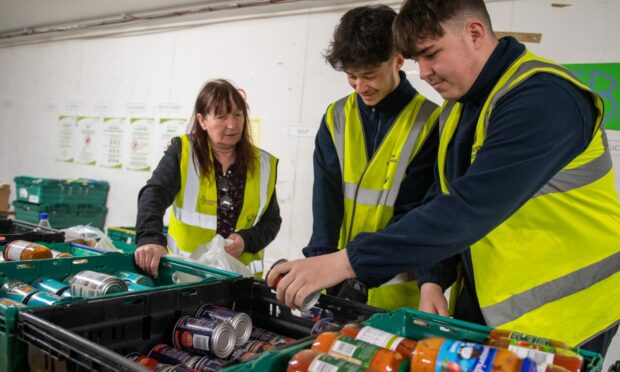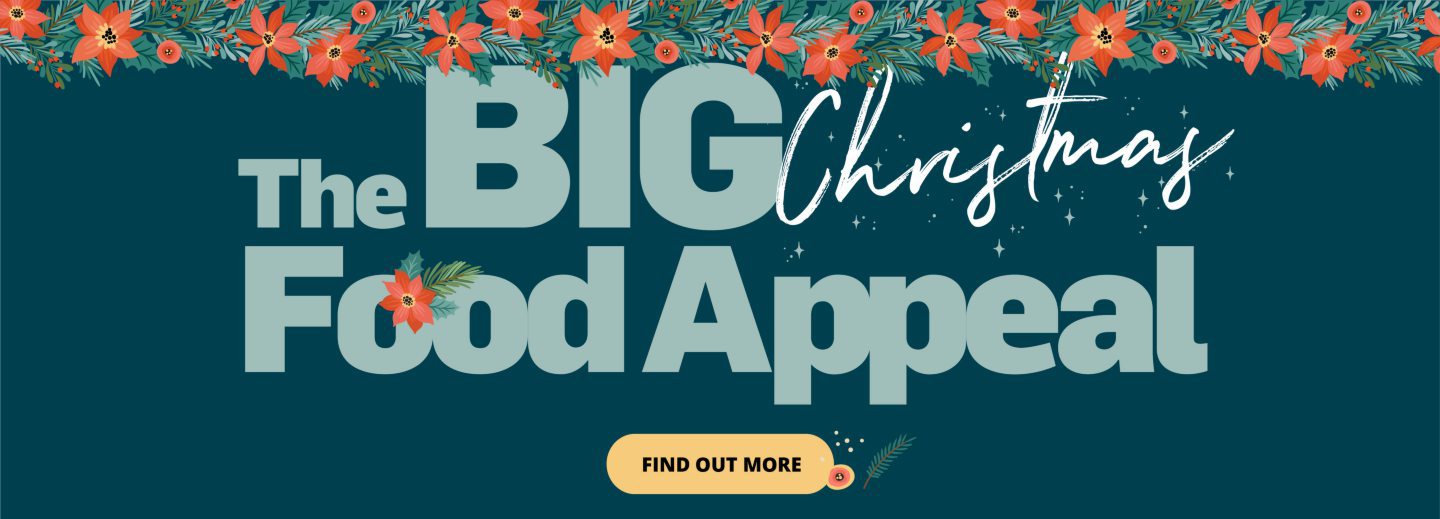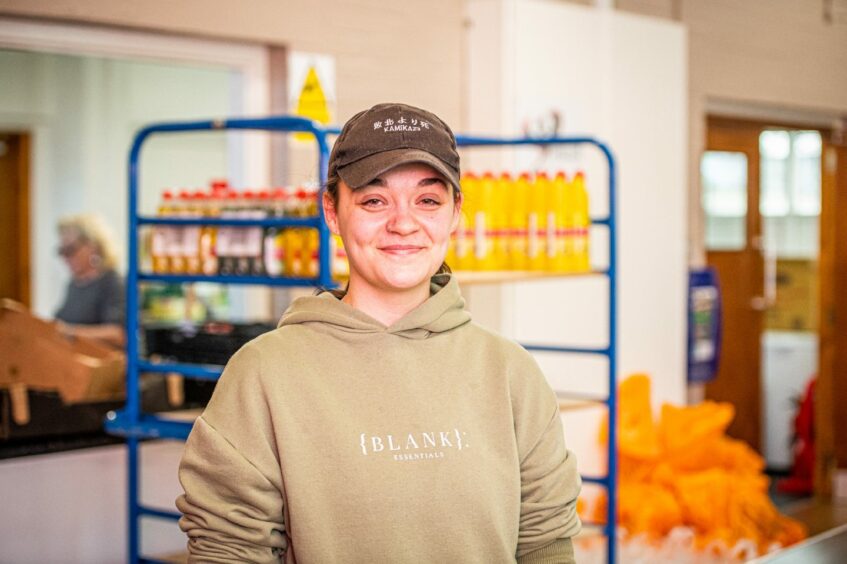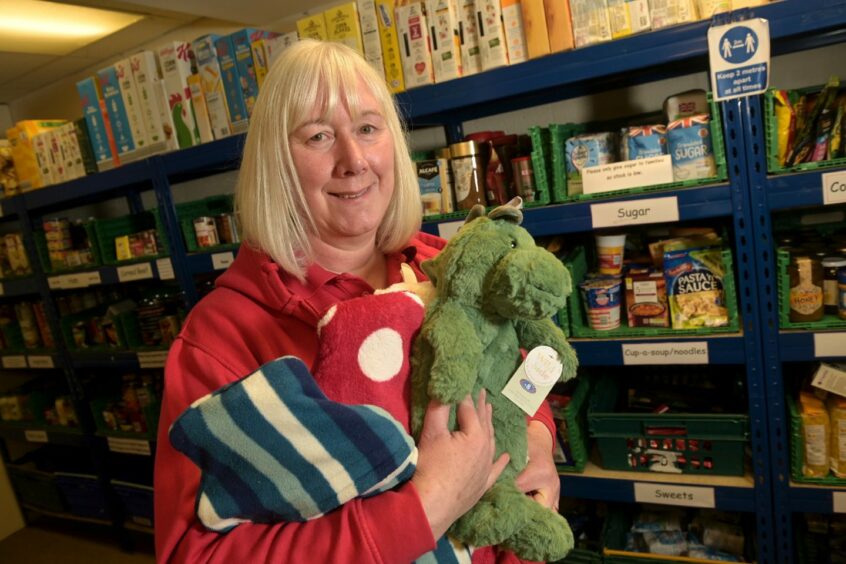Demand for food parcels has soared so much that foodbanks are hitting capacity by 10am, a charity has revealed.
Foodbanks across the country are facing mounting pressure as requests for help soar – while donations drop.
Earlier this year, it was reported one in 10 foodbanks could be at risk of closure due to the rising costs of heating premises and declining support as people cut back.
And this week the Trussell Trust said foodbanks are at “breaking point” as they face a “tsunami of need”. Between April and September, about 116,000 emergency food parcels were distributed across Scotland, a 34% increase on the same period last year.
Determined staff are working flat out to help their communities – adapting to their needs in any way they can, like offering pre-cooked cold parcels to those unable to heat their food due to rocketing energy prices.
That’s why today, we’re relaunching our Big Christmas Food Appeal to assist those efforts.
The Press and Journal, Evening Express, Original 106 and Energy Voice have teamed up to raise vital cash and donations for our charity partner Cfine.
Cfine works to support groups and foodbanks across Grampian, the Highlands and islands – meaning anything you can help us raise will go right to those in your community.
Among those Cfine supports is Moray Food Plus – who revealed that demand has soared in recent weeks, leaving the team with little choice but buying stock – or deferring deliveries.
‘Circumstances are changing so quickly’
Project manager Mairi McCallum said that despite good support from the community, low food stocks are hitting hard.
The Elgin-based foodbank is spending around £1,000 a month on food they’re short of to meet the demand coming through the door.
And with so many requests for help flooding in, some days the charity is having to turn people away as early as 10am.
“We’re not at risk of closing,” Mrs McCallum said, “but we are really struggling to meet the demands.
“There’s a lot of people coming to the foodbank for the first time, people’s circumstances are just changing so quickly at the moment.
“With having such a large region on any given day we could be anywhere across Moray with our two vans or volunteers using their own cars to help us.
“We used to have a cut-off time, so we would get a referral in before 11.30am and it would get dealt with the same day, but unfortunately we’re just so busy now we just can’t guarantee that.
“There’s some days where we have to cut off at 10am because we’re at capacity and there’s only so much we can fit in the vans or make up in the day.”
The service is not just paying out for rising energy costs, but also diesel to run the Big Blue mobile pantry – which ensures rural communities have access to food.
Mrs McCallum added: “We really do appreciate the support we have in Moray because we are aware of other foodbanks where they have had to close because they just don’t have the stock or they’re not getting financial donations.”
Pre-cooked meals ensure ‘full belly’
In Aberdeen, Inchgarth Community Centre expects to be feeding around 500 individuals a week soon.
Foodbank coordinator Victoria Alexander said that while they’re receiving donations, they’re going right back out that same week.
As well as emergency food parcels, the team provide freshly cooked meals – which are sometimes the only home-cooked meal someone has for the week. These have been adapted to support those struggling with rising energy bills.
Mrs Alexander said: “All of them can be eaten cold because they’re all pre-cooked, so even if someone maybe doesn’t have the finances to put in that extra £10 of gas or electricity they can still have the meal and have a full belly – it may not be hot, but the meals are still there.”
The community centre’s cafe also offers suspended teas, coffees and lunches, meaning people can discreetly ask for a warming drink or meal that has been paid forward.
Some people spend hours in the cafe, staying cosy, charging their phones or enjoying the company.
“People having to choose between eating and heating their house is my personal main concern for the foodbank users, because a lot of people will choose not to eat,” Mrs Alexander said.
Foodbank helping ‘heat the person, not the home’
Like their colleagues in Aberdeen and Elgin, Inverness-based Highland Foodbank, is seeing an increase in people looking for help to stay warm.
In response, the team has launched an appeal for hot water bottles.
Lorna Dempster, foodbank manager, said people referred to the service are able to choose them as part of their package.
“Certainly, Martin Lewis is saying ‘heat the person, not the home,'” she said. “If you’re not able to put the heating on, or if you want to preserve your electricity or gas filling a hot water bottle is a more cost-effective way of keeping warm.”
Energy costs are on the up for the charity too, along with the cost of running vans delivering food to outlying foodbanks or vulnerable people who physically can’t access the service.
“That will have an effect on us as a charity long-term, there are all these things to think about as well now,” she said.
For more information, or to get involved with The Big Christmas Food Appeal, click here.






Conversation